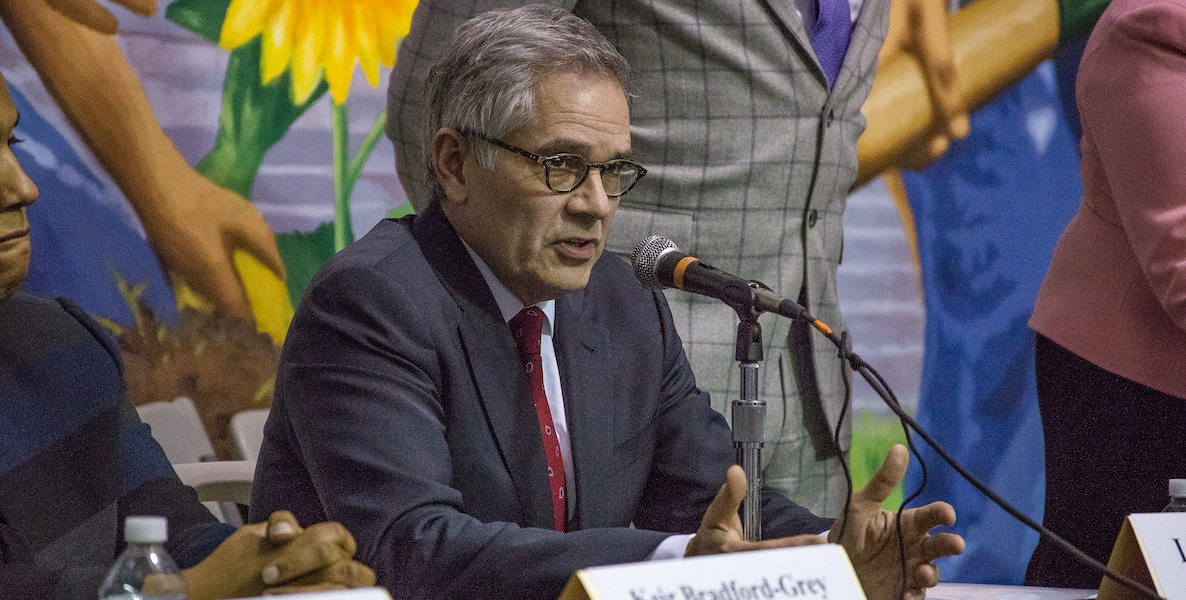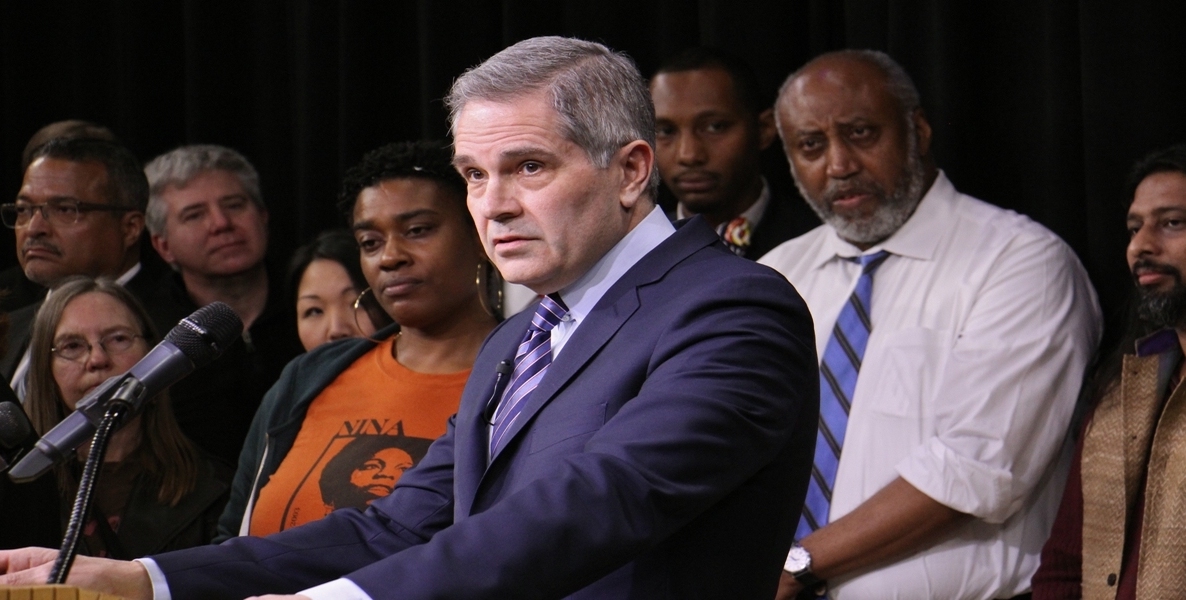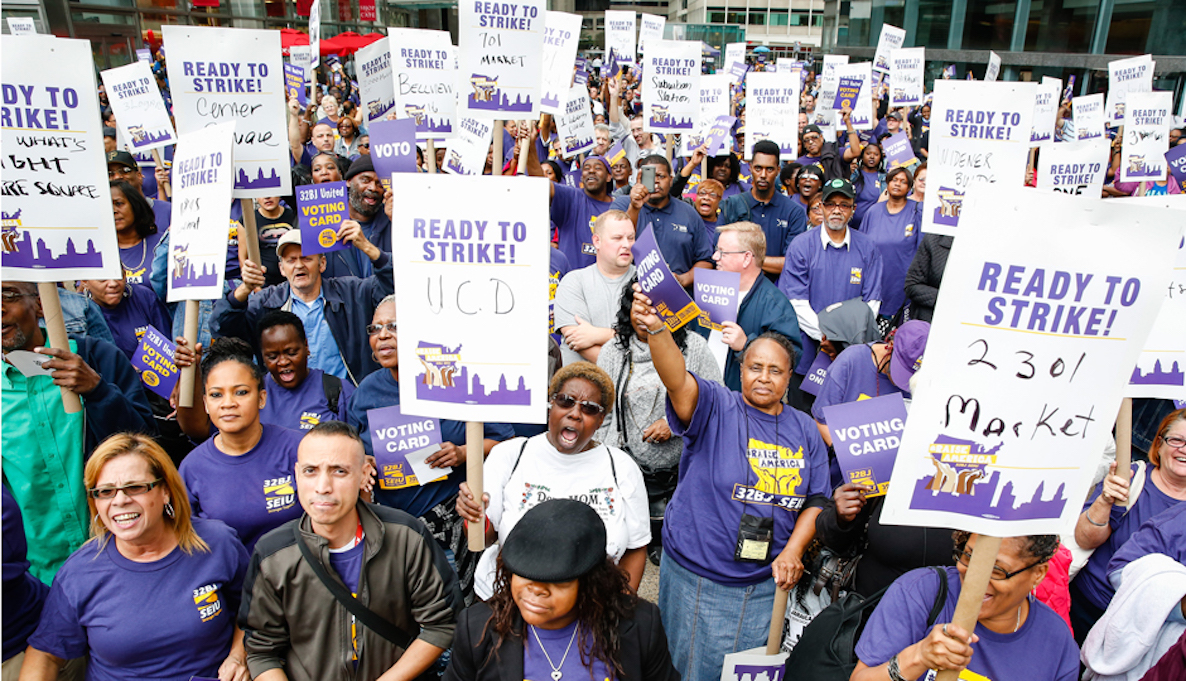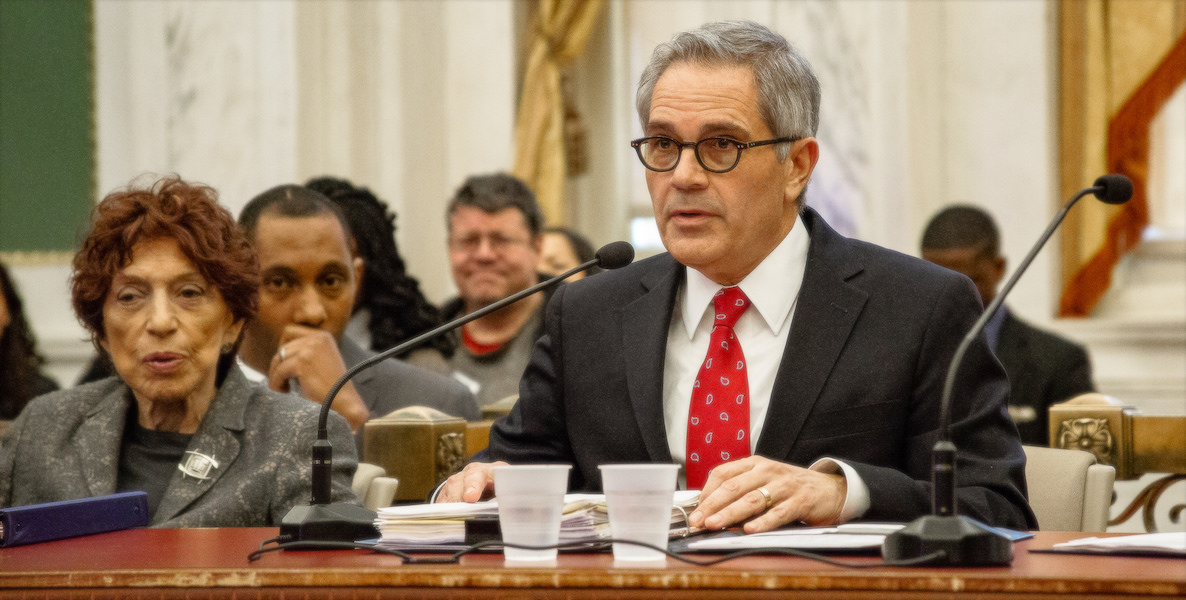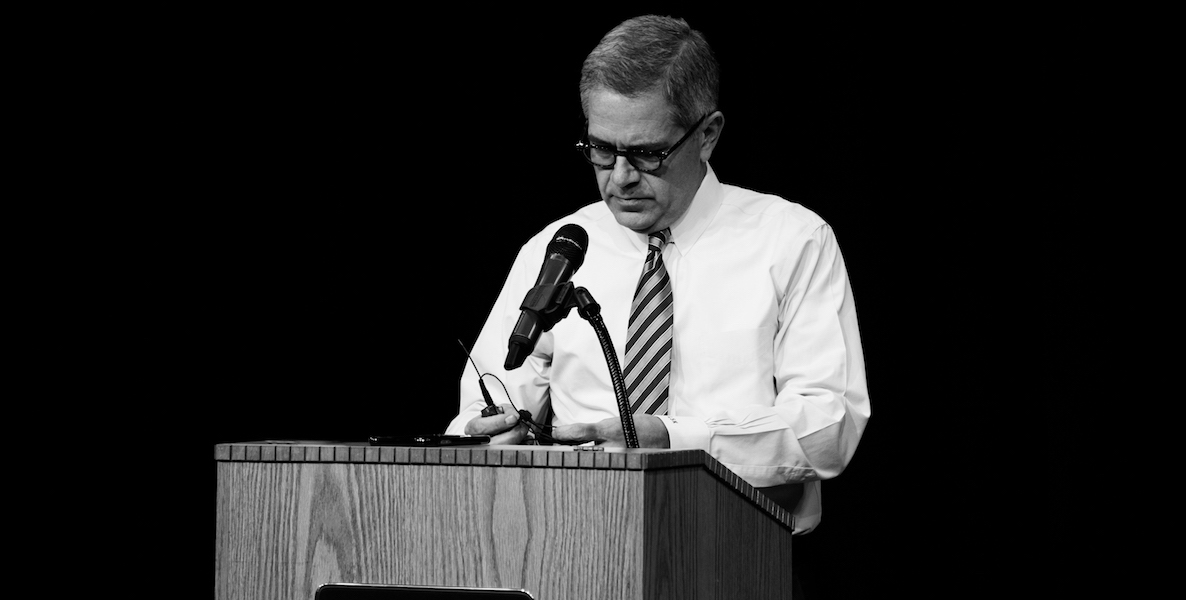Philadelphia is among the poorest and most heavily incarcerated cities in America, which happens to be the most heavily incarcerated country in the world.
When Larry Krasner won an upset election to become Philadelphia’s new district attorney in 2017, he initiated an unprecedented policy overhaul aimed at tackling both poverty and mass incarceration. It will be years before we can evaluate the success of that endeavor, but Philadelphia’s acceptance of such a project means it’s not too soon for us to start talking about an even more dramatic experiment in criminal justice reform: prison abolition.
In a recent article for The Nation, the writer John Washington begins an examination of the prison abolition movement by emphasizing the staggering expense of mass incarceration, estimated at upwards of $1 trillion every year. And that amount doesn’t begin to cover the unquantifiable societal cost of a system that currently warehouses some 2.2 million people and exerts supervisory authority over another 5 million, a disproportionate number of whom are black, brown and impoverished.
The political, economic and social obstacles to abolition are formidable, to say the least. Still, radical reforms like those we’re beginning to see in Philadelphia illuminate the possibility of a world in which we tackle society’s problems by serving people’s needs, not by locking them away.
Since the 1970s, state prison populations have ballooned by 700 percent. The metastasis of the American carceral state and its devastating impact on inmates, families and communities have brought criminal justice reform to the fore of the national consciousness. It’s even shocked some strange ideological bedfellows into common cause. Newt Gingrich, for example, has been a vocal prison reform advocate for several years, and a bi-partisan bill to add vocational training and mental health treatment in federal prisons passed the House of Representatives earlier this year.
That an issue could find bipartisan support in such a rancorous political era is a testament to its gravity and urgency. And it’s also a safe bet that whatever policy changes do emerge from this rare instance of cooperation will be wholly unequal to the magnitude of the problem. Prison abolitionists argue that nothing short of eliminating incarceration altogether will be sufficient.
The prison abolition movement actually predates the contemporary spotlight on mass incarceration; a pamphlet published in 1976 by the Prison Research Education Action Project offers a three-pronged approach of moratorium, decarceration and excarceration.
![]()
The abolitionist idea behind a moratorium on prison construction is simple: if you don’t build them, they won’t come. Between 1990 and 2005, the number of state and federal jails and correctional institutions increased by 43 percent, driven by the powerful private prison lobby and draconian sentencing practices in courts around the country. When there’s money to be made in filling prisons, the means will be found to fill them. Barack Obama’s limited effort to address this practice by ending federal contracts with private prisons recognized that eliminating the profit motive from the equation can have an impact on shrinking prison populations. Of course, the Trump administration recognized this as well, which is why Jeff Sessions promptly reversed Obama’s policy.
The decarceration component of abolition focuses on releasing people from prison. Washington illustrates this concept by pointing to the irony of marijuana legalization, noting that over the past 10 years there have been nearly 350,000 marijuana arrests in California, where weed has been legal in some form or another for over two decades. It seems a basic injustice that anyone should languish in prison or carry the burden of a conviction for possession of a plant becoming widely available in doctors’ offices and strip mall storefronts.
With the recent limited legalization of marijuana in Pennsylvania, a bill has been proposed by a Democratic state senator to expunge possession convictions of people who can prove they were using pot for medical purposes. (The bill has no sponsor across the aisle in a Republican-controlled legislature.) This is a baby step in the right direction, but any failure to match legal marijuana legislation with corresponding decarceration and expungement measures will only exacerbate the relative immiseration of poor and minority communities.
There’s no disputing that crime takes a severe economic and psychological toll on our society, nor that it upends individual lives. But prison abolitionists don’t seek to “legalize” crime, nor do they delude themselves that crime will magically disappear if incarceration is ended.
The excarceration prong of the prison abolition model calls for alternatives to sending people to jail in the first place, and sounds most clearly in Krasner’s prosecutorial reforms. The remarkable policy memo he released earlier this year argues, “Philadelphia’s over-incarceration has bankrupted investment in policing, public education, medical treatment of addiction, job training and economic development—which prevent crime more effectively than money invested in correction.”
Krasner’s commitment to this thesis takes shape in instructions to his prosecutors to cease all marijuana possession charges, dramatically reduce and divert prostitution charges, and to downgrade most retail thefts to summary offenses. Perhaps the most striking of the DA’s new policies is a requirement that prosecutors at sentencing state “the financial cost of incarceration on the record as part of your explanation of the sentence recommended.” The nearly $60,000 per year it takes to jail one person in Philadelphia could pay the salary of a teacher, police officer, firefighter, social worker or addiction counselor. Krasner’s memo encourages his prosecutors to “use these comparisons on the record.”
![]()
Opponents of prison abolition, including many who do recognize that our criminal justice system is in desperate need of repair, point to the high cost of crime as an argument against eliminating incarceration. One recent study estimated that the societal cost of a murder is $8.9 million, the cost of a rape $241,000, and the cost of a robbery $42,000. It bears noting that these estimates include the costs of imprisoning the perpetrator, and the loss of legal earnings borne by individuals who attempt to make a living through crime.
More to the point, however, the contention that prisons are necessary to alleviate crime’s economic impact on society is predicated on the assumption that imprisonment—and the threat of imprisonment—are effective deterrents to criminality. While it’s impossible to determine how many crimes are not committed in the first place thanks to the generalized prospect of jail time, it’s much easier to determine how effective incarceration is in thwarting recidivism. The answer? Not very effective at all. A 2014 report from the Department of Justice found that almost 68 percent of state prisoners were re-arrested within five years of release.
![]()
There’s no disputing that crime takes a severe economic and psychological toll on our society, nor that it upends individual lives, and not just the lives of its immediate victims. But prison abolitionists don’t seek to “legalize” crime, nor do they delude themselves that crime will magically disappear if incarceration is ended. Underpinning the abolitionist argument is the idea that by systematically alienating, dehumanizing and stigmatizing individuals while feeding corporate interests whose profits depend on the imprisonment of those individuals, prisons are in fact an essential engine of crime.
Prison abolitionists envision a variety of alternatives to our current, broken carceral system. Some call for universalizing restorative justice practices like those that have proven successful elsewhere in the world, and even here in the U.S. Others call for different approaches centered around restitution and reconciliation. But what nearly all prison abolitionists agree upon is that the vast fortune wasted on caging and supervising human beings in this country would be infinitely better spent attacking the proven root causes of crime: poverty, housing insecurity, lack of education, unemployment, mental illness and addiction.
This goal is the fundamental rationale behind the new policies and expectations of Philadelphia’s district attorney. Make no mistake, Larry Krasner hasn’t called for prisons to be abolished, and the political, economic and social obstacles to abolition are formidable, to say the least. Still, radical reforms like those we’re beginning to see in Philadelphia illuminate the possibility of a world in which we tackle society’s problems by serving people’s needs, not by locking them away.
Alex Braden is an attorney in Philadelphia.



